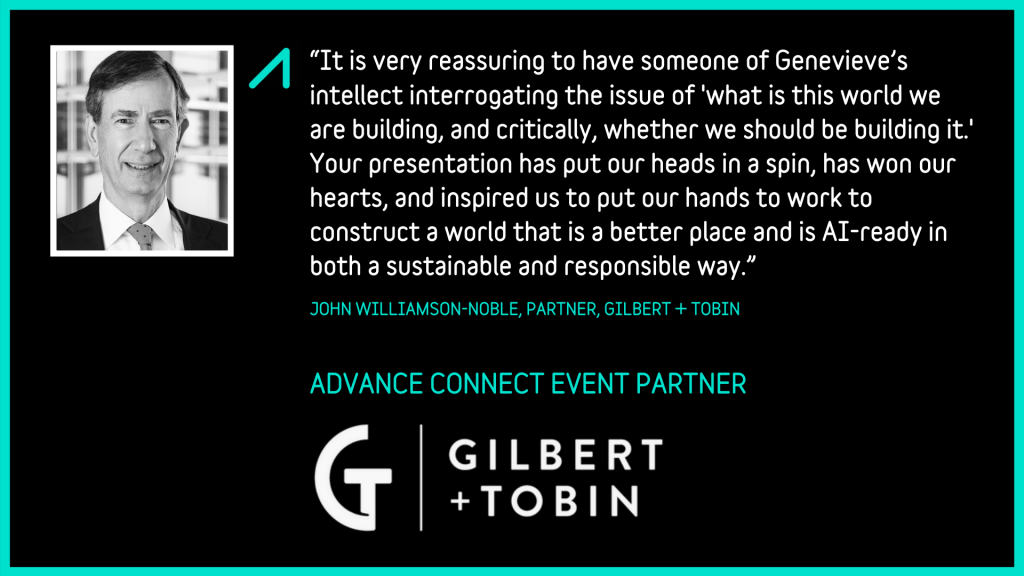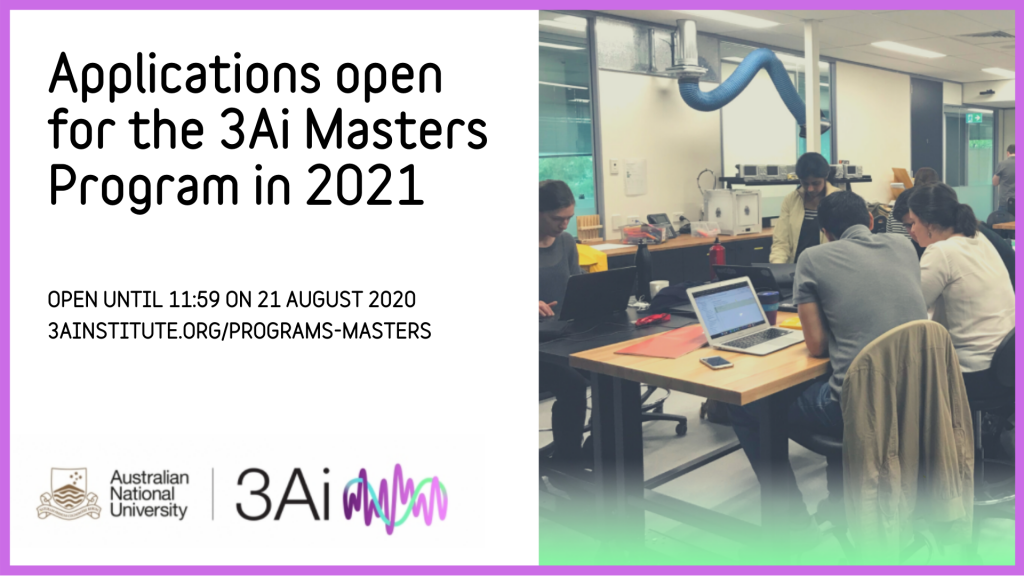LISTEN > Distinguished Professor Genevieve Bell AO, FTSE opening remarks at the Advance.org global digital roundtable on what it means to build something new in 2020.
Advance Global Australian Award Winner and Advance Science & Technology Award Winner in 2016, Distinguished Professor Genevieve Bell AO FTSE shared her incredible journey from growing up in remote Aboriginal communities to the tech sector as Intel’s resident anthropologist, before returning to create a brand new discipline within engineering at the 3A Institute within the Australian National University.
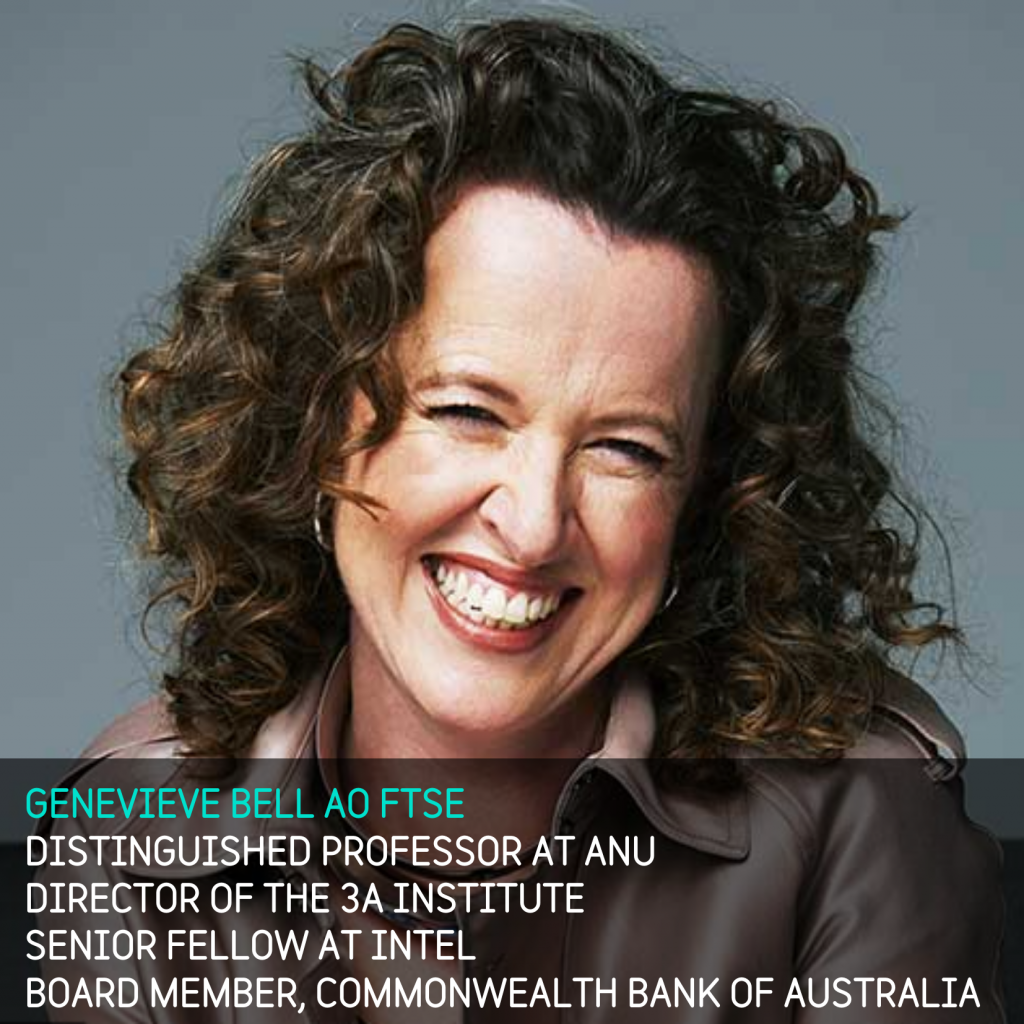
Introducing Genevieve, Advance.org Chair, Yasmin Allen, noted the current imperative for Australia to transition its workforce, and the Federal Government’s $1.5Bn plan to reform the skills sector and invest in the skills needed for the future. Yasmin highlighted Genevieve’s strength as an innate storyteller, who is explaining, and shaping, the relationship between humans and computers.
Drawing on her deep connection with indigenous Australian values, Genevieve highlighted the ways in which the earliest Aboriginal practices were guided by the same principles she seeks in technology today – that it must be sustainable, safe, responsible and inclusive.
After completing her university undergraduate and PhD degrees in the US, Genevieve left her tenure-track faculty position at Stanford to become the resident anthropologist at Intel for 18 years.
She was motivated by her desire to influence the course of technology development for the better.
Working at the forefront of new technology developments at Intel, Genevieve realised that the world didn’t have the skills, tools or critical questions to tackle the new wave of technology – known variously as big data, the internet of things, and AI.
Creating a whole new discipline
On receiving the call with the message that it was ‘time to come back’ from Vice Chancellor Professor Brian Schmidt AC, Genevieve created a new centre at ANU, the 3A Institute, that would establish a new framework for AI to be managed in a manner that is safe, sustainable and responsible. This involved the creation of a new branch of engineering. With the rapid development of a Masters of Applied Cybernetics curriculum, the first cohort of 16 students graduated in July 2020.
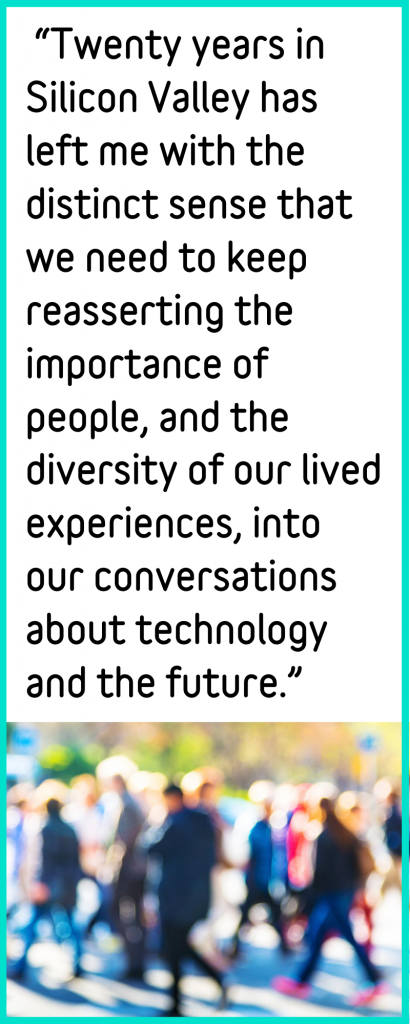
Such is the success, that the 3A Institute is now seeing increasing application numbers, progress is being made in developing a PhD program, research is in train, and soon an undergraduate and external training components will be added. Genevieve and her collaborators have positioned Australia to lead. So what did it take to build an entirely new curriculum for a new discipline?
- Learn lessons from history. What have been the success factors or reasons for failure of the growth of new discipline (e.g. the fields of computer science and civil engineering have thrived; but information sciences didn’t scale).
- Be comprehensive. Teach it, study it, and theorise it into existence.
- Be intentional about diversity. Attract a cohort that includes diversity of backgrounds, ages, prior disciplines, geographic/cultural origin, as well as gender.
- Focus on the building blocks. Enable students to encounter AI systems:
- Hands – Know how to code and build things – to be able to communicate with engineers
- Heads – Learn the frameworks for critical thinking to move from problem-solving to question-framing and
- Hearts – Embrace the reason for doing it, to be mission-driven and interested in the success of others.
- Be experimental and ambitious. The 3Ai Master of Applied Cybernetics program is explicitly iterative, shaped by student participation and input.
Australian advantages from building new technologies
Guests who joined the roundtable sought Genevieve’s views on sources of bias, statistical fallacies, and how she is teaching students to tackle philosophical and ethical questions. On the topic of advantages for Australians in technology development, Genevieve pointed to Australia as a proven testbed for new technology (such as drought, reef, water table and sustainability solutions) and leveraging assets built to support mineral extraction (such as autonomous vehicles and remote monitoring). This reputation is underpinned by progressive regulatory regimes, and impressive data sets (particularly related to climate and epidemiology) collated through decades of consistent government repositories including Medicare.
What does Bell think Australia needs to do to be an AI-ready society?
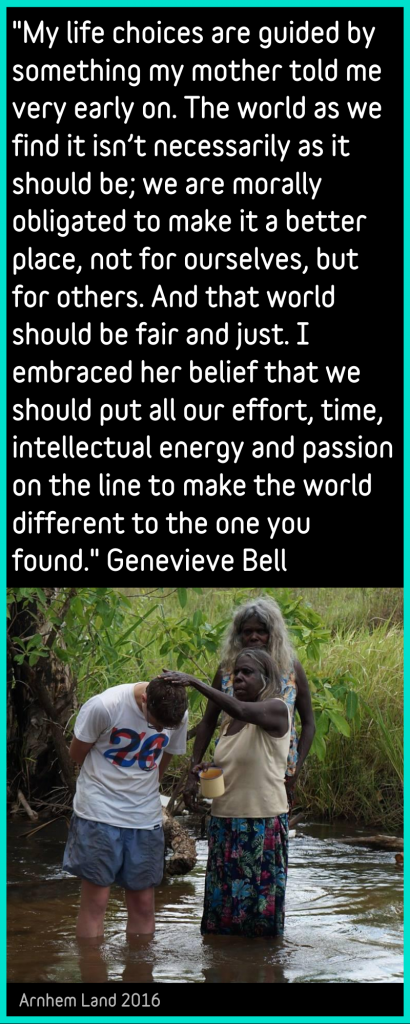
- 1/ Develop a sustainable approach to cope with the growth of AI-enabled products and services. Computer processing and data storage consume massive amounts of energy today, and this will grow significantly with the rollout of additional computing power of 5G. Energy standards and an understanding of vulnerabilities in the supply chain are required to make Australia AI-ready.
- 2/ Find ways to bring society along that reflect Australian notions of civic society, and build trust in innovation. This involves building a value set to guide AI development, as New Zealand has recently released.
- 3/ Focus on learning, and encourage Australians to learn about AI and related technologies. Importantly, this is more than new content for the school curriculum, but engaging multiple sectors, and training Australians wherever they are in their career to be technically literate.
- 4/ Explore applications for AI beyond business, and leverage the efficiencies and productivity gains from AI in other sectors, such as creative industries and sport. For example, AI-enabled drones and virtual reality in creative performances can deliver enhanced audience experiences and reach remote audiences.
- 5/ Balance the regulatory framework and demonstrate that regulation and innovation can co-exist. A balanced regulatory framework that incorporates standards, policy, and regulations is necessary to achieve goals of safety, security and inclusivity through AI.
- 6/ Challenge the existing measures of a good society, from reliance on GDP and economic metrics, to a suite of measures that reflect the broader impact (positive or negative) of technology.
When global Australians return to Australia
Genevieve’s enormous contribution to Australia’s technological standing in the world has been made possible because ANU enticed her to come home. Her journey embodies the Advance.org purpose and ambition – to support Australians as they build their career overseas, and to ensure their achievements are discovered by Australian organisations, so their expertise can be harnessed for the benefit of Australia. In addition to 30 valued Advance.org partners, the event included the Advance Global Impact Award winner 2019, Prof John Mattick AO, as well as the next generation of global Australians, such as Holly Ransom and Sally Montgomery, who are undertaking postgraduate studies at Harvard University and Cambridge University respectively.
Further information
- Listen to the opening remarks by Distinguished Professor Genevieve Bell AO FTSE > More
- About the 3A Institute at the Australian National University > More
- About Distinguished Professor Genevieve Bell AO FTSE > More
- Commencement Address at the graduation of the first cohort from the 3A Institute by Distinguished Professor Genevieve Bell AO FTSE > More
Feedback
“Genevieve is unique, and in a class of her own. What a fascinating set of remarks, so human with a great sense of humour, connecting the dots between disciplines and issues that most of us would never think of connecting. Altogether a very stimulating session.”
“It was a treat to hear Genevieve weave such incredibly diverse themes and ideas together – and do it with such infectious enthusiasm. Thanks for making it happen Advance.”
“Genevieve lit up a rainy day – always so fascinating to listen to.
“…That was awesome as usual”.
“Just brilliant! Thank you”
join advance.org
This roundtable was made possible due to the support of our partners Gilbert + Tobin.
